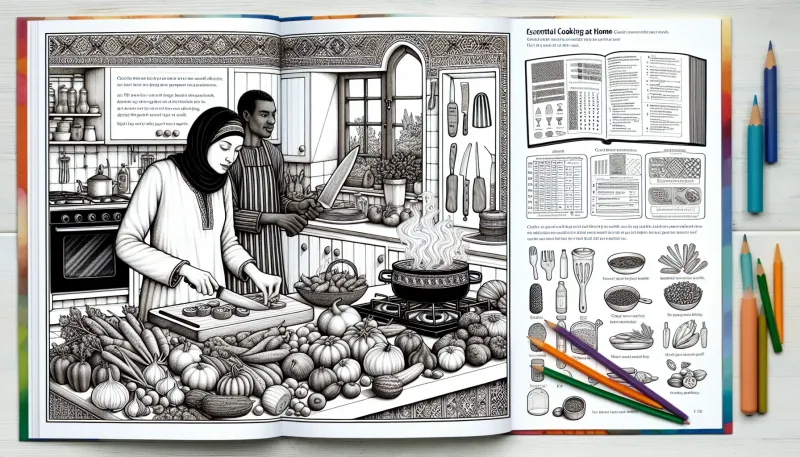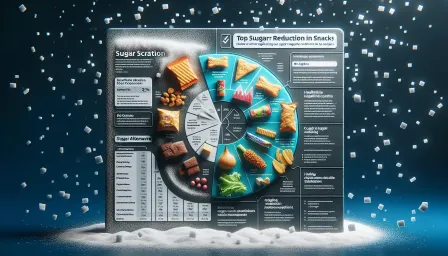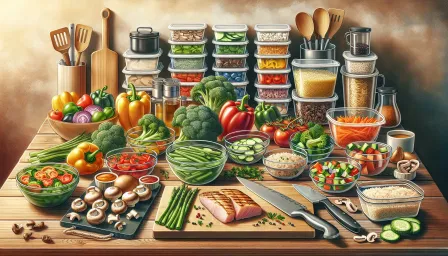Essential Cooking at Home Tips to Master Your Kitchen Skills

Master your kitchen skills with our in-depth cooking at home tips. Learn essential techniques, meal planning, and more to elevate your home-cooked meals.
Cooking at home can be both immensely rewarding and, at times, quite daunting. With the right guidance and tips, you can hone your culinary skills and confidently prepare delicious meals. This article presents essential cooking at home tips to help you master your kitchen skills, making your time in the kitchen more efficient and enjoyable.
1. Organize Your Kitchen
Declutter and Arrange Your Tools
An organized kitchen is the foundation of efficient cooking. Start by decluttering your kitchen and arranging your tools where they are easily accessible. Group similar items together—keep cutting boards, knives, and measuring tools in one place, and store pots, pans, and lids in another. This organization will save you time and reduce frustration as you cook.
Utilize Vertical Storage Solutions
Maximize your kitchen space by using vertical storage solutions like wall-mounted racks and shelves. This approach keeps your countertops clean and provides easy access to your frequently used items.
2. Master Basic Knife Skills
Learn the Different Kinds of Cuts
Knife skills are fundamental to cooking. Learn the different kinds of cuts, such as dicing, slicing, and chopping. Practice consistently to improve your precision and speed.
Invest in a Quality Chef’s Knife
A good chef’s knife is a worthwhile investment. It should feel comfortable in your hand and be appropriately weighted. Keep it sharpened to ensure clean cuts and to make your chopping safer and easier.
3. Understand Flavor Profiles
Experiment with Herbs and Spices
Understanding flavor profiles is vital for creating delicious meals. Experiment with different herbs and spices to see how they complement each other. Know when to use dried versus fresh herbs and how to balance flavors like salty, sweet, sour, and umami.
Stock a Versatile Spice Cabinet
Keep a well-stocked spice cabinet with versatile spices like cumin, paprika, garlic powder, and herbs like basil and thyme. Having these on hand allows you to build a variety of flavor profiles with ease.
4. Plan Your Meals
Create a Weekly Menu
Meal planning is essential for reducing stress and waste. Start by creating a weekly menu that outlines what you will cook each day. This practice helps you shop efficiently and ensures you have all necessary ingredients.
Prep Ingredients in Advance
Spend some time each week prepping ingredients in advance. Chop vegetables, marinate meats, and prepare sauces. Prepping ahead saves time during the week and makes cooking less of a chore.
5. Practice Food Safety
Keep a Clean Work Environment
Maintaining a clean kitchen is crucial for food safety. Regularly wash your hands, sanitize surfaces, and avoid cross-contamination by using separate cutting boards for raw meats and vegetables.
Understand Proper Cooking Temperatures
Ensure your food is cooked to safe temperatures by using a food thermometer. Familiarize yourself with the recommended cooking temperatures for different types of meat to prevent foodborne illnesses.
6. Embrace Cooking Techniques
Master Boiling, Sautéing, and Roasting
Various cooking techniques bring out different flavors and textures in ingredients. Master basic techniques like boiling pasta, sautéing vegetables, and roasting meats. These foundational skills will serve you well in many recipes.
Experiment with Advanced Techniques
As you become more comfortable, try advanced techniques like braising, grilling, and sous-vide. Each method offers unique benefits and can elevate your cooking to new levels.
7. Continuously Learn and Practice
Follow Cooking Tutorials
There is always something new to learn in cooking. Follow online tutorials, attend cooking classes, or read cooking books to expand your knowledge and skills.
Learn from Mistakes
Mistakes are part of the learning process. Don’t be discouraged by failures in the kitchen. Analyze what went wrong and how to improve next time. Perseverance and practice are key to becoming a better cook.
Cooking at home can be a joyous and satisfying experience when armed with the right tips and skills. By organizing your kitchen, mastering essential techniques, understanding flavors, planning meals, maintaining food safety, and continuously learning, you will elevate your cooking prowess. Embrace these essential cooking at home tips, and take your home-cooked meals to new delicious heights.



























